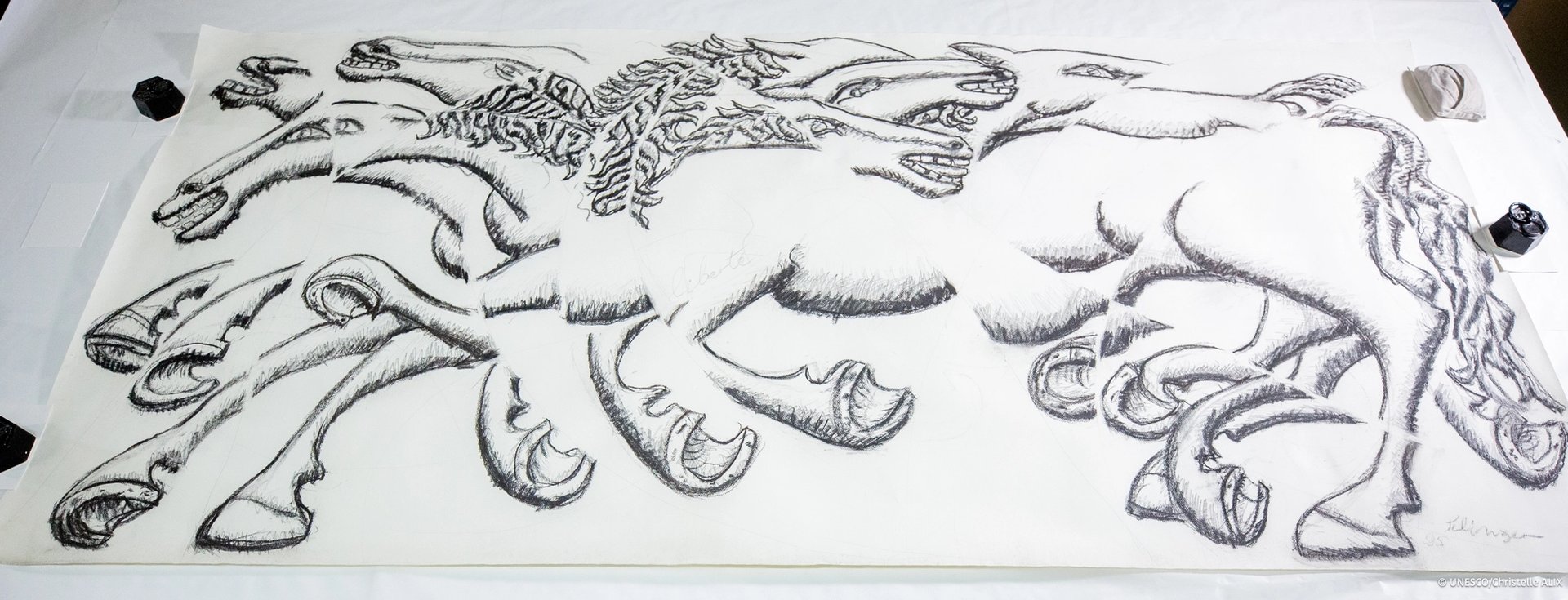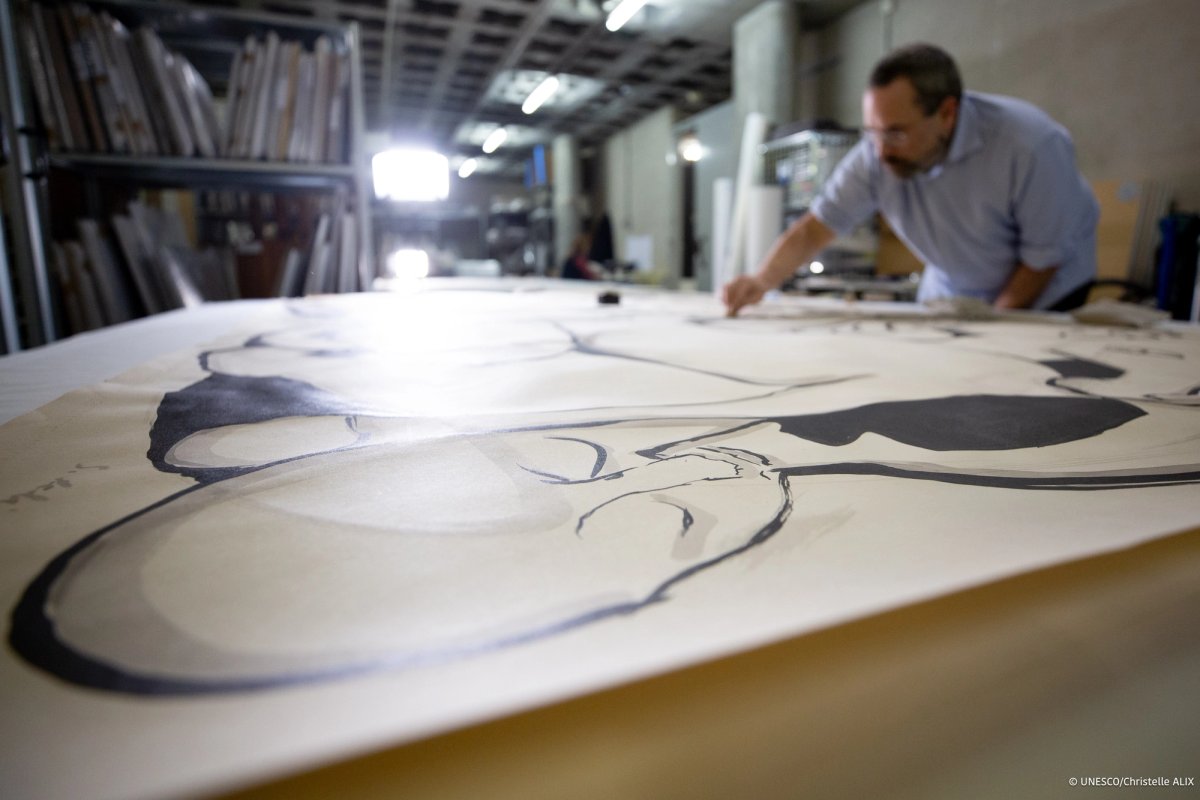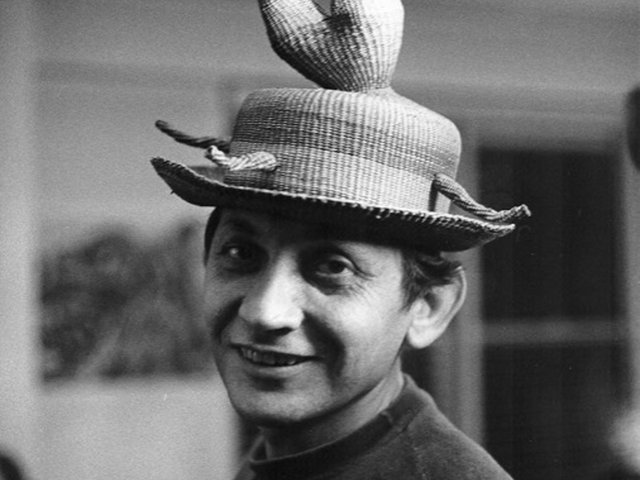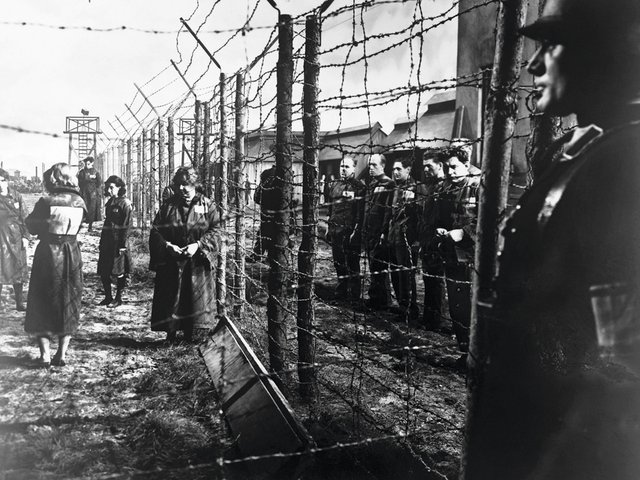The Polish-born artist Shelomo Selinger, 96, who spent time in a series of concentration camps during the Second World War, has donated two works to Unesco, marking the 80th anniversary of the liberation of the Auschwitz-Birkenau camp in Poland.
Selinger’s works—Desire for freedom, a charcoal drawing made in 1995, and Shoah (Holocaust), an Indian ink drawing done in 1975—will enter Unesco’s art collection, which started in the 1950s and now includes more than 700 works by artists including Pablo Picasso, Joan Miró and Jean Arp. The restoration of the drawings was overseen by Unesco's Works of Art Department, says a Unesco spokesperson.
Unesco's director general, Audrey Azoulay, said in a statement: “These two artworks will contribute to Unesco's efforts to ensure the memory of the Holocaust reaches as many people as possible, and will initially be on loan to the Musée de la Shoah in Drancy for an exhibition.”

In France Selinger enrolled at the École des Beaux-Arts and studied under the sculptor Marcel Gimond
Shoah (1975)
Selinger was born in 1928 in Szczakowa, southern Poland, and was deported in 1942, moving through nine concentration camps. His mother and one of his sisters were taken to Auschwitz in 1943, and in 1945 he was discovered by a Russian doctor at the Theresienstadt camp in northwestern Czechoslovakia. He then suffered from amnesia for seven years before heading to France in 1955, where he enrolled at the École des Beaux-Arts in Paris and studied under the sculptor Marcel Gimond.
According to the Auschwitz memorial and museum website, soldiers of the 60th Army of the First Ukrainian Front opened the gates of the concentration camp outside Krakow on 27 January 1945. The Nazis left behind the “Arbeit Macht Frei” (work will set you free) gate, which became a symbol of the horror of the Holocaust.
Around 1.1 million are estimated to have been murdered there, around 1 million of them Jews. Victims also included around 70,000 Polish prisoners, 21,000 Roma, 15,000 Soviet prisoners of war and an unknown number of gay men. About 50 former inmates of the camp are expected to attend a commemoration ceremony at the complex today.
Meanwhile the Wiener Holocaust Library in London has made accessible its digital archive of 150,000 items including letters, pamphlets and photos. The library houses the world’s oldest and the UK’s largest collection of original archival material on pre-war Jewish life, the Nazi era and the Holocaust. The library director, Toby Simpson, told The Guardian that the project had been in the works for more than ten years.




